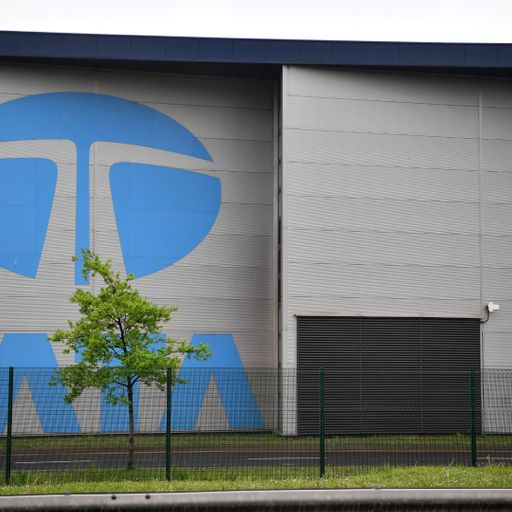The Chinese conglomerate which took control of British Steel earlier this year has set its sights on an even bigger UK deal by lodging an interest in Tata Steel UK, the owner of the vast Port Talbot plant in South Wales.
Sky News has learnt that Jingye Group told Tata’s parent company and the government that it is keen to explore a takeover of Britain’s largest steel producer.
Banking sources said this weekend that Jingye’s interest was at a tentative stage, and insisted that there was not a formal sale process for Tata Steel UK’s operations.
They added, however, that discussions between Tata’s Indian parent and the government had failed to make substantial progress in the weeks since investment bankers were drafted in to help ministers thrash out a deal.
“There are clear signs that Tata is open to getting rid of the UK business, and Jingye’s expression of interest is an obvious response to that,” one banker said.
If Jingye, which concluded its acquisition of British Steel from liquidators in March, did acquire Tata Steel UK, it would reunite the Port Talbot and Scunthorpe steelworks – the two largest in the UK – under common ownership.
The Scunthorpe plan was owned by Tata until 2016, when it was sold to the investment firm Greybull Capital.
The business, renamed British Steel, collapsed last year.
Jingye is said to have intensified its interest in the Port Talbot steelworks – where more than 3,000 people are based – after its bid to buy the Hayange plant in France was blocked amid political objections.
The Hayange site was instead bought by Liberty Steel, another major player in the UK and a logical alternative buyer for Tata Steel UK.
Although large parts of Britain’s steel industry have been under the control of foreign owners for more than a decade, the unification of two such big employers under Chinese ownership would draw inevitable political scrutiny.
Jingye’s rescue of British Steel this year salvaged 3,000 jobs, and was accompanied by a pledge to invest £1.2bn in modernising the business.
Tata Steel UK is substantially larger, with a total workforce of about 8,000 people.
The Indian-owned group approached the government during the spring, seeking a £500m loan to help it weather the coronavirus crisis.
That request was rejected, leading to a subsequent plea for £900m of government cash in exchange for an equity stake of up to 50% in its UK business.
Whitehall officials balked at that proposal on the basis that Tata was not committing significant new capital of its own.
A further proposal has been anticipated for weeks, but has so far not been forthcoming, according to a source close to the company.
Alongside the work that Credit Suisse has been undertaking for the government on Tata Steel UK’s future, the management consultants McKinsey has drawn up a blueprint for the future of the UK’s wider steel industry at ministers’ request.
The consultant’s work is expected to help inform decision-making about which, if any, steel companies may merit government support, they said.
Since the start of the COVID-19 pandemic, only Celsa Steel UK, which is based in Cardiff, has received special funding under the government’s Project Birch scheme.
Both Jingye and Liberty have also sought financial aid from the government, although none has so far been forthcoming.
This weekend, a Tata Steel spokesperson said: “We remain in ongoing and constructive talks with the UK government on areas of potential support.
“As these discussions have not reached a conclusion, it would be premature to comment on any options that may or may not be under consideration.”
A spokesman for Jingye and British Steel declined to comment.


